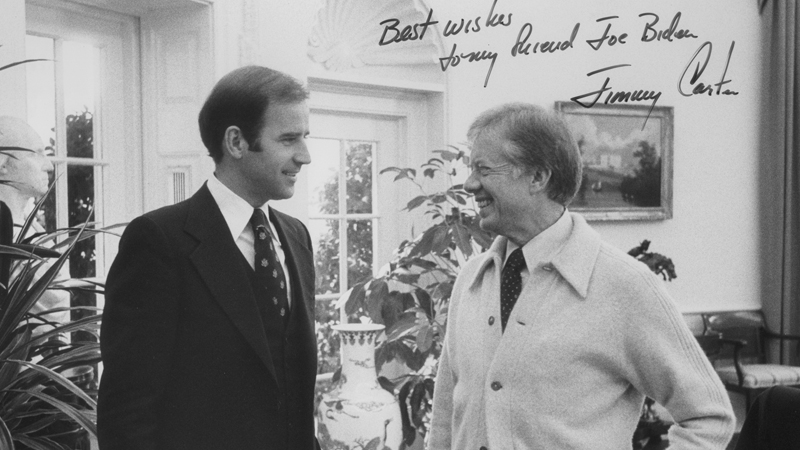
On October 1, Jimmy Carter became the first-ever US president to live past 95 years. He enjoyed a celebratory cavalcade in Plains, Georgia. Yet his Democratic party has ignored one of his most enduring legacies.
Signing the Airline Deregulation Act, the Motor Carrier Regulatory Reform and Modernization Act, and the Staggers Rail Act into law, Carter’s pen struck longstanding regulatory restrictions on commerce via sky, road, and railway. More goods from more sellers could now be bought — and delivered — in more ways.
The regulatory structures left in place by such partial measures have faced no real challenge from subsequent Democratic and Republican administrations. Partisans on both sides would soon mistake deregulation for a right-wing project, originating with rock-ribbed conservative Ronald Reagan and continued by centrist Bill Clinton, despite neither putting into practice their rhetorical echoes of Carter.
The view of Carter’s economic program from farther left was summed up by Howard Zinn: That it preserved “the fundamental facts of maldistribution of wealth in America.” Doug Henwood of Left Business Observer puzzles that Carter’s deregulation was supported by “an odd coalition of right-wingers, mainstream economists, liberals, and consumer advocates.”
Consumer advocate Ralph Nader urged Carter to allow “wide-open price competition in the marketplace.” This, he argued, would undermine corporate “federal and state welfare supports” which “assure price-setting cartels.” Gabriel Kolko’s historical study Railroads and Regulation supports that case, showing how industry titans not only supported federal regulation but “enthusiastically worked for its extension.”
Given how much “the motives and consequences of regulation have been misunderstood,” Kolko was onto something in inferring that “the conventional interpretation … warrants a radical reappraisal.”
Carter has called Joe Biden his “first and most effective supporter in the Senate.” The current Democratic nominee should be reminded to follow Carter’s deregulatory path.
New Yorker Joel Schlosberg is a contributing editor at The William Lloyd Garrison Center for Libertarian Advocacy Journalism.
PUBLICATION/CITATION HISTORY
- “Jimmy Carter Freed Markets. Will Joe Biden?” by Joel Schlosberg, Queens [New York] Ledger, 10/14/20
- “Jimmy Carter Freed Markets. Will Joe Biden?” by Joel Schlosberg, Forest Hills/Rego Park [New York] Times, 10/14/20
- “Jimmy Carter Freed Markets. Will Joe Biden?” by Joel Schlosberg, The Glendale [New York] Register, 10/14/20
- “Jimmy Carter Freed Markets. Will Joe Biden?” by Joel Schlosberg, Leader/Observer [New York City], 10/14/20
- “Jimmy Carter Freed Markets. Will Joe Biden?” by Joel Schlosberg, The Long Island City/Astoria [New York] Journal, 10/14/20
- “Jimmy Carter Freed Markets. Will Joe Biden?” by Joel Schlosberg, Queens [New York] Examiner, 10/14/20
- “Jimmy Carter Freed Markets. Will Joe Biden?” by Joel Schlosberg, Greenpoint [New York] Star, 10/14/20
- “Jimmy Carter Freed Markets. Will Joe Biden?” by Joel Schlosberg, Brooklyn [New York] Downtown Star, 10/14/20
- “Jimmy Carter Freed Markets. Will Joe Biden?,” by Joel Schlosberg, Ventura County, California Citizens Journal, 10/20/20


